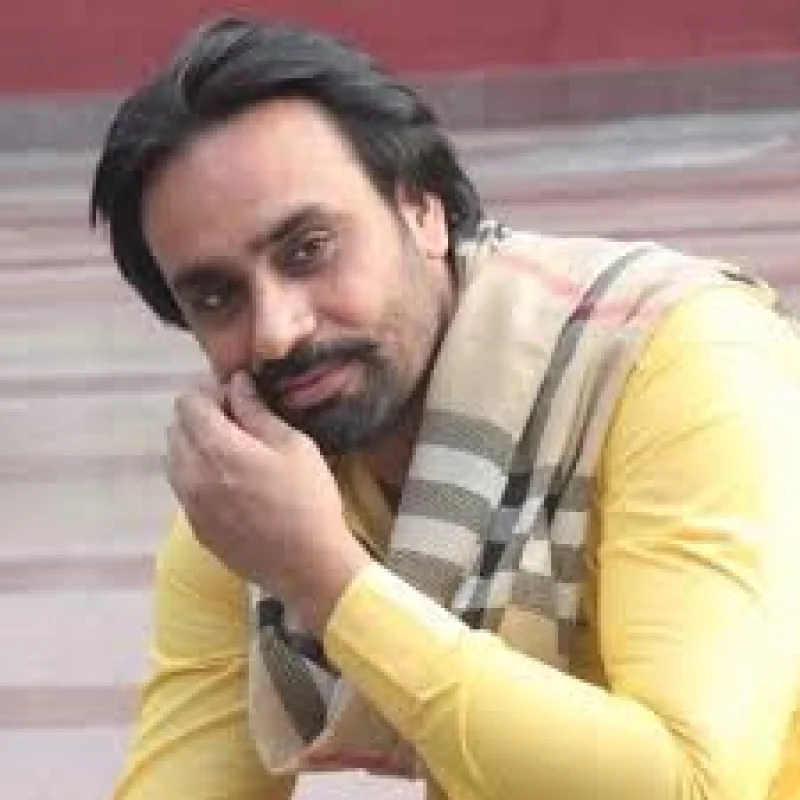Short Summary
Stephen Fry is a renowned British actor, comedian, writer, and television presenter. He gained fame for his work in the comedy duo Fry and Laurie, alongside Hugh Laurie, and for hosting the BBC television quiz show "QI." Fry is also celebrated for his literary contributions, including novels, autobiographies, and scripts. His wit, intelligence, and eloquent storytelling have made him a beloved figure in British culture.
Early Life & Education
Stephen Fry was born on August 24, 1957, in Hampstead, London, England. He grew up in a family that valued education and the arts, which greatly influenced his formative years. Fry attended several schools, including Uppingham School and Stouts Hill Preparatory School, where he demonstrated his academic prowess and love for literature. However, his rebellious nature led to expulsion from multiple institutions. Despite these challenges, he eventually attended Queens' College, Cambridge, where he studied English literature. It was at Cambridge that he met future collaborators Hugh Laurie and Emma Thompson, joining the Cambridge Footlights, a pivotal step in his comedic and acting career.
Career Highlights
Stephen Fry's career began in earnest with the Cambridge Footlights, leading to his breakthrough in the 1980s with the television sketch show "A Bit of Fry & Laurie." This collaboration with Hugh Laurie showcased his sharp wit and comedic timing. Fry gained further acclaim for his role as the butler Jeeves in the television adaptation of P.G. Wodehouse's "Jeeves and Wooster." He also starred in the critically acclaimed film "Wilde," portraying writer Oscar Wilde. Fry's contributions to literature include several novels and autobiographies, further cementing his status as a versatile and influential cultural figure.
Major Achievements
- Won a Golden Globe nomination for his portrayal of Oscar Wilde in the film "Wilde."
- Hosted the popular television quiz show "QI" for 13 years, becoming the face of the program.
- Published multiple bestselling novels and memoirs, including "The Liar" and "Moab Is My Washpot."
- Received honorary doctorates from several universities for his contributions to literature and the arts.
- Advocated for mental health awareness, drawing from his own experiences with bipolar disorder.
Famous Quotes
- "The only reason people do not know much is because they do not care to know."
- "It is a cliché that most clichés are true, but then, like most clichés, that cliché is untrue."
Interesting Facts
- Stephen Fry was expelled from two schools during his teenage years.
- He is an avid technophile and was one of the first celebrities to reach one million followers on Twitter.
- Fry has a keen interest in language and has narrated several audiobooks, including the Harry Potter series.
- He is openly gay and has been a prominent advocate for LGBTQ+ rights.
- In addition to English, Fry has a working knowledge of several languages, including French and German.
Legacy / Influence
Stephen Fry's legacy is marked by his contributions to British comedy, literature, and television. His intelligent humor and eloquence have influenced a generation of comedians and writers. As a mental health advocate, he has helped destigmatize mental illness, encouraging open discussions about well-being. His work in promoting LGBTQ+ rights and education has further solidified his position as a culturally significant figure.
FAQ
Q: Why is Stephen Fry famous?
A: He is famous for his work as a comedian, actor, writer, and television presenter, particularly known for "A Bit of Fry & Laurie" and hosting "QI."
Q: What are some of Stephen Fry's literary works?
A: He has written several novels, including "The Liar," "The Hippopotamus," and his memoirs such as "Moab Is My Washpot."
Q: Has Stephen Fry won any awards?
A: Yes, he has received numerous accolades, including a Golden Globe nomination and several honorary doctorates for his contributions to the arts.
Q: What is Stephen Fry's role in mental health advocacy?
A: He has been a vocal advocate for mental health awareness, drawing from his own experiences with bipolar disorder to promote open dialogue and understanding.











